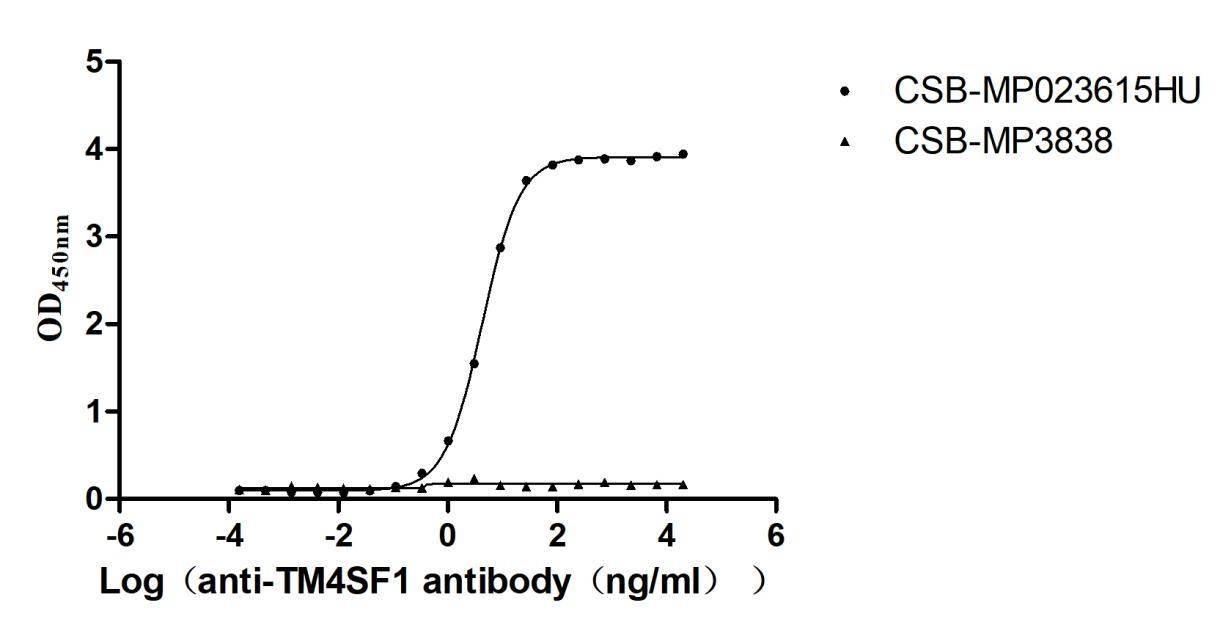Recombinant Mouse Sphingosine kinase 1 (Sphk1)
-
货号:CSB-YP022564MO
-
规格:
-
来源:Yeast
-
其他:
-
货号:CSB-EP022564MO
-
规格:
-
来源:E.coli
-
其他:
-
货号:CSB-EP022564MO-B
-
规格:
-
来源:E.coli
-
共轭:Avi-tag Biotinylated
E. coli biotin ligase (BirA) is highly specific in covalently attaching biotin to the 15 amino acid AviTag peptide. This recombinant protein was biotinylated in vivo by AviTag-BirA technology, which method is BriA catalyzes amide linkage between the biotin and the specific lysine of the AviTag.
-
其他:
-
货号:CSB-BP022564MO
-
规格:
-
来源:Baculovirus
-
其他:
-
货号:CSB-MP022564MO
-
规格:
-
来源:Mammalian cell
-
其他:
产品详情
-
纯度:>85% (SDS-PAGE)
-
基因名:
-
Uniprot No.:
-
别名:Sphk1; Sk1; Sphingosine kinase 1; SK 1; SPK 1; EC 2.7.1.91; Acetyltransferase SPHK1; EC 2.3.1.-
-
种属:Mus musculus (Mouse)
-
蛋白长度:full length protein
-
表达区域:1-382
-
氨基酸序列MEPVECPRGL LPRPCRVLVL LNPQGGKGKA LQLFQSRVQP FLEEAEITFK LILTERKNHA RELVCAEELG HWDALAVMSG DGLMHEVVNG LMERPDWETA IQKPLCSLPG GSGNALAASV NHYAGYEQVT NEDLLINCTL LLCRRRLSPM NLLSLHTASG LRLYSVLSLS WGFVADVDLE SEKYRRLGEI RFTVGTFFRL ASLRIYQGQL AYLPVGTVAS KRPASTLVQK GPVDTHLVPL EEPVPSHWTV VPEQDFVLVL VLLHTHLSSE LFAAPMGRCE AGVMHLFYVR AGVSRAALLR LFLAMQKGKH MELDCPYLVH VPVVAFRLEP RSQRGVFSVD GELMVCEAVQ GQVHPNYLWM VCGSRDAPSG RDSRRGPPPE EP
-
蛋白标签:Tag type will be determined during the manufacturing process.
The tag type will be determined during production process. If you have specified tag type, please tell us and we will develop the specified tag preferentially. -
产品提供形式:Lyophilized powder
Note: We will preferentially ship the format that we have in stock, however, if you have any special requirement for the format, please remark your requirement when placing the order, we will prepare according to your demand. -
复溶:We recommend that this vial be briefly centrifuged prior to opening to bring the contents to the bottom. Please reconstitute protein in deionized sterile water to a concentration of 0.1-1.0 mg/mL.We recommend to add 5-50% of glycerol (final concentration) and aliquot for long-term storage at -20℃/-80℃. Our default final concentration of glycerol is 50%. Customers could use it as reference.
-
储存条件:Store at -20°C/-80°C upon receipt, aliquoting is necessary for mutiple use. Avoid repeated freeze-thaw cycles.
-
保质期:The shelf life is related to many factors, storage state, buffer ingredients, storage temperature and the stability of the protein itself.
Generally, the shelf life of liquid form is 6 months at -20°C/-80°C. The shelf life of lyophilized form is 12 months at -20°C/-80°C. -
货期:Delivery time may differ from different purchasing way or location, please kindly consult your local distributors for specific delivery time.Note: All of our proteins are default shipped with normal blue ice packs, if you request to ship with dry ice, please communicate with us in advance and extra fees will be charged.
-
注意事项:Repeated freezing and thawing is not recommended. Store working aliquots at 4°C for up to one week.
-
Datasheet :Please contact us to get it.
靶点详情
-
功能:Catalyzes the phosphorylation of sphingosine to form sphingosine 1-phosphate (SPP), a lipid mediator with both intra- and extracellular functions. Also acts on D-erythro-sphingosine and to a lesser extent sphinganine, but not other lipids, such as D,L-threo-dihydrosphingosine, N,N-dimethylsphingosine, diacylglycerol, ceramide, or phosphatidylinositol. In contrast to proapoptotic SPHK2, has a negative effect on intracellular ceramide levels, enhances cell growth and inhibits apoptosis. Involved in the regulation of inflammatory response and neuroinflammation. Via the product sphingosine 1-phosphate, stimulates TRAF2 E3 ubiquitin ligase activity, and promotes activation of NF-kappa-B in response to TNF signaling. In response to TNF and in parallel to NF-kappa-B activation, negatively regulates RANTES induction through p38 MAPK signaling pathway. Involved in endocytic membrane trafficking induced by sphingosine, recruited to dilate endosomes, also plays a role on later stages of endosomal maturation and membrane fusion independently of its kinase activity. In Purkinje cells, seems to be also involved in the regulation of autophagosome-lysosome fusion upon VEGFA.; Has serine acetyltransferase activity on PTGS2/COX2 in an acetyl-CoA dependent manner. The acetyltransferase activity increases in presence of the kinase substrate, sphingosine. During neuroinflammation, through PTGS2 acetylation, promotes neuronal secretion of specialized preresolving mediators (SPMs), especially 15-R-lipoxin A4, which results in an increase of phagocytic microglia.
-
基因功能参考文献:
- Neuronal SphK1 acetylates COX2 and contributes to pathogenesis in Alzheimer's disease patients and in a transgenic mouse model. PMID: 29662056
- vascular transcriptome analysis shows that S1P pathway is critical in the regulation of vascular function in AngII-induced hypertension, although Sphk1 may have opposing roles in the regulation of vasoconstriction and endothelium-dependent vasorelaxation. PMID: 28276483
- these findings suggest that SphK1 may play a pivotal role in HER2-positive breast carcinogenesis PMID: 28968647
- The cell division gene PCNA was significantly overexpressed in SK2(-/-) cells, suggesting a cross regulation between sphingosine kinases and Ceramide glucosyltransferase. PMID: 29673590
- SphK1 expression regulates the early stage of colon carcinogenesis and tumor growth, thus inhibition of SphK1 may be an effective strategy for colon cancer chemoprevention. PMID: 28583134
- Studied role of microglial cells in inflammation via a Toll-like receptor 2 (TLR2)-->sphingosine kinase 1 (Sphk1)-->pro-inflammatory cytokine pathway in cerebral ischemia/reperfusion (I/R). PMID: 29039449
- SphK1 is involved in maladaptive hypertrophy and we propose that heart failure might be an additional direct target for therapeutic intervention with SphK1 inhibitors. PMID: 28789830
- These results suggest that SphK1 expression plays a pivotal role in the early stages of colon carcinogenesis PMID: 29028945
- the recruitment of Sphk1 to sphingosine-enriched endocytic vesicles and the generation of sphingosine-1-phosphate facilitate membrane trafficking along the endosomal pathway. PMID: 27806293
- SK1 activation is renoprotective via induction of autophagy in the fibrotic process PMID: 28733250
- donor islets from mice deficient in Sphk1 KO contain a reduced number of resident intraislet vascular endothelial cells. The main product of Sphk1, sphingosine-1-phosphate, controls the migration of intraislet endothelial cells in vitro. In vivo, Sphk1 knockout islets have an impaired ability to cure diabetes compared with wild-type controls. PMID: 28174291
- Sphingosine kinase 1 worsens pancreatic cancer peritoneal carcinomatosis by stimulation of proliferation of cancer cells. PMID: 27664902
- These results highlight the importance of sphingosine and its conversion to sphingosine-1-phosphate by SphK1 in endocytic membrane trafficking. PMID: 28049734
- Melatonin-treated cells also exhibited an inhibition of the SphK1/S1P axis. Antifibrogenic effect of SphK1 inhibition was confirmed by treatment of LX2 cells with PF543. Abrogation of the lipid signaling pathway by the indole reveals novel molecular pathways that may account for the protective effect of melatonin in liver fibrogenesis. PMID: 27801960
- These findings suggest that the inhibitory effect of these plant extracts on the activation of AGEs/RAGE/SphK1 signaling pathway in db/db diabetic mice kidney is a novel mechanism by which they exert renoprotective effects in diabetic nephropathy. PMID: 26972502
- Keratinocyte-specific deletion of Traf2, but not Sphk1 deficiency, disrupted TNF mediated NF-kappaB and MAP kinase signalling and caused epidermal hyperplasia and psoriatic skin inflammation. PMID: 26701909
- SphK1 dependent PKC-delta activation plays an important role in promoting NF-kappaB activation and inflammatory response in acute liver failure, and inhibition of PKC-delta activation might be a potential therapeutic strategy for this disease. PMID: 26730154
- Inhibition of SphK1 ameliorates drug-induced acute liver failure by reducing HMGB1 cytoplasmic translocation in liver cells. PMID: 26676341
- Collectively, our results demonstrate that PF-543 exerts potent anti-CRC activity in vitro and in vivo. PMID: 26775841
- transient receptor potential channel 1 suppression of basal sphingosine kinase 1 activity enables endothelial cell-barrier destabilization by edemagenic agonists PMID: 26316271
- Based on these findings, the s propose new roles for SK1 in affecting innate responses that regulate susceptibility to dengue virus infection. PMID: 26541871
- Together, these results suggest that alpha-MSH alleviates Dex-induced damages to cultured osteoblasts through activating MC4R-SphK1 signaling. PMID: 26631960
- The study demonstrates a new pathway connecting SphK1 and PPARgamma involved in the pathogenesis of hepatocellular steatosis. PMID: 26615875
- Inhibition of SK1 attenuates the second phase of transmembrane Calcium influx. PMID: 25871850
- The results of this study indicated that Sphk1 plays an essential role in mediating post-stroke neuroinflammation. PMID: 25797575
- Prolonged lowering of plasma S1P, using sphingosine kinase inhibitor, produces pro-atherogenic effects in LDL-R-/- mice that are evident under condition of pronounced hypercholesterolemia. PMID: 25801013
- study provides new insights into the role of SphK1 in hepatocyte survival and uncovers a novel mechanism for protection against ER stress-mediated cell death. PMID: 26240153
- oxLDL induced angiogenesis requires SPHK1/S1P signalling both in vitro in a HMEC-1 tube formation model and in vivo in the murine Matrigel plug model PMID: 25176316
- Hematopoietic-derived SK1/S1P regulates specific aspects of the systemic inflammatory response. PMID: 25460165
- CTGF exerts profibrotic action in myoblasts via the up-regulation of sphingosine kinase-1/S1P3 signaling axis in TGF-beta dependent manner. PMID: 25457224
- Suggest that hepatic SphK1 plays an important role in regulating TAG metabolism under low-fat diet conditions. PMID: 25490466
- The SK1-Sphingosine 1-Phosphate pathway promotes host defense against Cryptococcus neoformans infections by regulating cytokine levels, promoting extracellular killing by phagocytes, and generating a granulomatous response. PMID: 25895971
- The up-regulation of SphK1 and S1P-dependent pathways is critical for the angiogenic/vasculogenic activity of endothelial colony-forming cells. PMID: 24743591
- the A2B adenosine receptor (ADORA2B) is essential for adenosine-induced SphK1 activity in human and mouse normal and sickle erythrocytes in vitro PMID: 25587035
- Sphingosine kinase 1 is a powerful negative regulator of platelet function counteracting thrombus formation. PMID: 25231106
- SphK1 expression increases IL-6 expression in adipocytes PMID: 25253697
- SK1 and SK2 down-regulation reduces the motility of satellite cells. PMID: 25131845
- The sphK1 gene modulation in the Abeta load and the learning and memory ability in the animal model of AD may be important for the treatment of AD. PMID: 23771672
- In diet-induced obese mice, SK1 deficiency increased markers of adipogenesis and adipose gene expression of the anti-inflammatory molecules and reduced adipose tissue macrophage (ATM) recruitment and proinflammatory molecules TNFalpha and IL-6. PMID: 24473437
- SphK1 deficiency attenuated hyperoxia-induced accumulation of IL-6 in bronchoalveolar lavage fluids and NADPH oxidase (NOX) 2 and NOX4 protein expression in lung tissue. PMID: 23933064
- key role of Sphk1, S1PR1 and S1PR3 in angiogenesis underlying the liver fibrosis process PMID: 23466305
- attenuation of Sphk1, 2 activity, particularly Sphk2, leads to increased intracellular sphingolipids and autophagy in macrophages. PMID: 24081141
- The current study reports a critical role of sphingosine kinase 1 (SphK1) in beta-cell survival under lipotoxic conditions. PMID: 23839933
- Our data provide evidence for the crucial role for SphK1 and S1P signaling system in resuscitation and survival after cardiac arrest PMID: 23892195
- indicate that PPARalpha regulates Sphk1 expression in the context of fatty acid oversupply and links PAL to muscle IL-6 production PMID: 23766515
- Demonstrate that HPPCn attenuated oxidative injury and fibrosis induced by ethanol feeding and that the SphK1/S1P/S1PRs signalling pathway contributes to this protective effect. PMID: 23839903
- The H2O2-induced src/PDGFRbeta/SK1 signaling cascade was impaired in nSMase2-deficient fro/fro cells and was rescued by exogenous C2Cer that activated src/PDGFRbeta/SK1. PMID: 23651497
- tested whether induction of cytoprotective sphingosine kinase-1 and sphingosine-1-phosphate synthesis might be the mechanism in A1 adenosine receptor-mediated renal protection from ischemia PMID: 22695326
- genetic loss of Sphk1 exacerbated cystogenesis and was associated with increased levels of GlcCer and GM3 PMID: 22563011
- Compared with original Friend cells, stable overexpression of wild-type SPHK1 showed higher cell proliferation, resistance to cell death by serum depletion PMID: 23328083
显示更多
收起更多
-
亚细胞定位:Cytoplasm. Endosome membrane; Peripheral membrane protein. Nucleus. Cell membrane. Cell junction, synapse.
-
组织特异性:Widely expressed. Expressed in brain (at protein level). Detected in neurons.
-
数据库链接:
KEGG: mmu:20698
STRING: 10090.ENSMUSP00000131010
UniGene: Mm.20944
Most popular with customers
-
Recombinant Human CD276 antigen (CD276), partial (Active)
Express system: Mammalian cell
Species: Homo sapiens (Human)
-
Recombinant Human Plexin-B1 (PLXNB1), partial (Active)
Express system: Mammalian cell
Species: Homo sapiens (Human)
-
Recombinant Human B-lymphocyte antigen CD20 (MS4A1)-VLPs (Active)
Express system: Mammalian cell
Species: Homo sapiens (Human)
-
Express system: Mammalian cell
Species: Macaca fascicularis (Crab-eating macaque) (Cynomolgus monkey)
-
Recombinant Human Interleukin-17A (IL17A) (T26A) (Active)
Express system: Baculovirus
Species: Homo sapiens (Human)
-
Recombinant Human Dickkopf-related protein 1 (DKK1) (Active)
Express system: Mammalian cell
Species: Homo sapiens (Human)
-
Recombinant Human Transmembrane 4 L6 family member 1(TM4SF1)-VLPs (Active)
Express system: Mammalian cell
Species: Homo sapiens (Human)


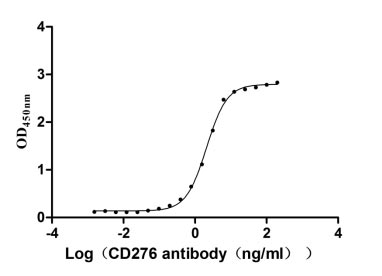
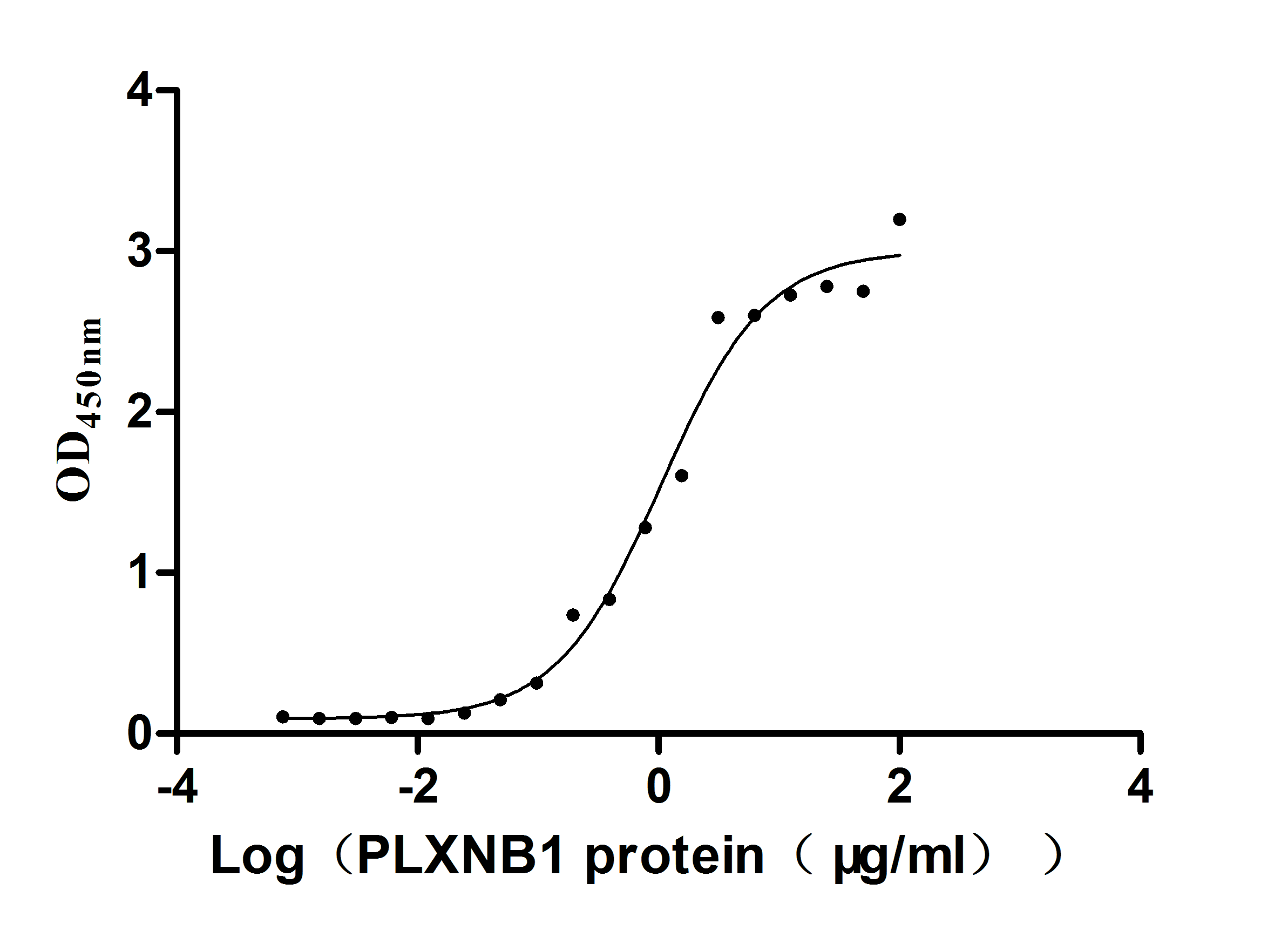
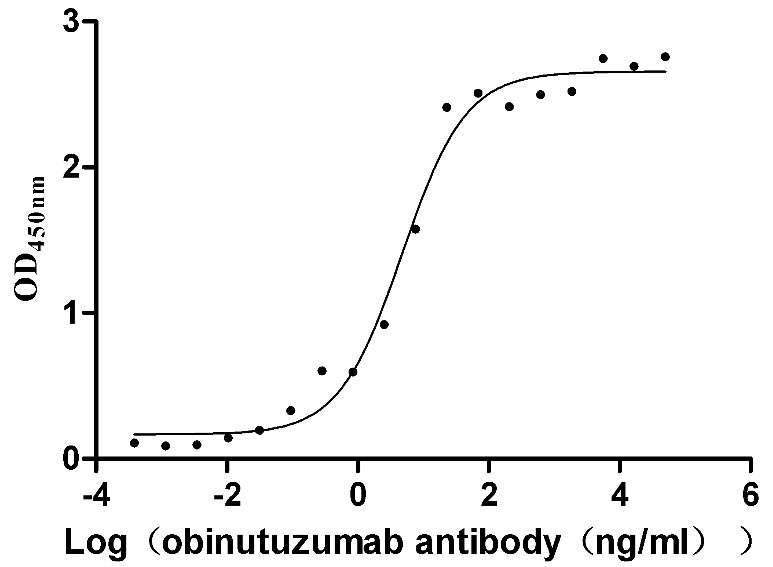
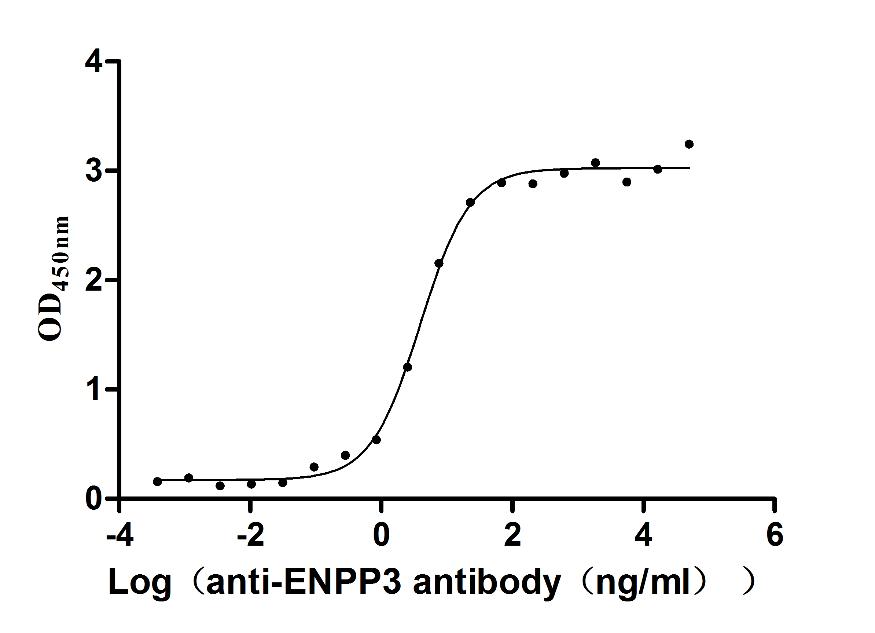
-AC1.jpg)
-AC1.jpg)
